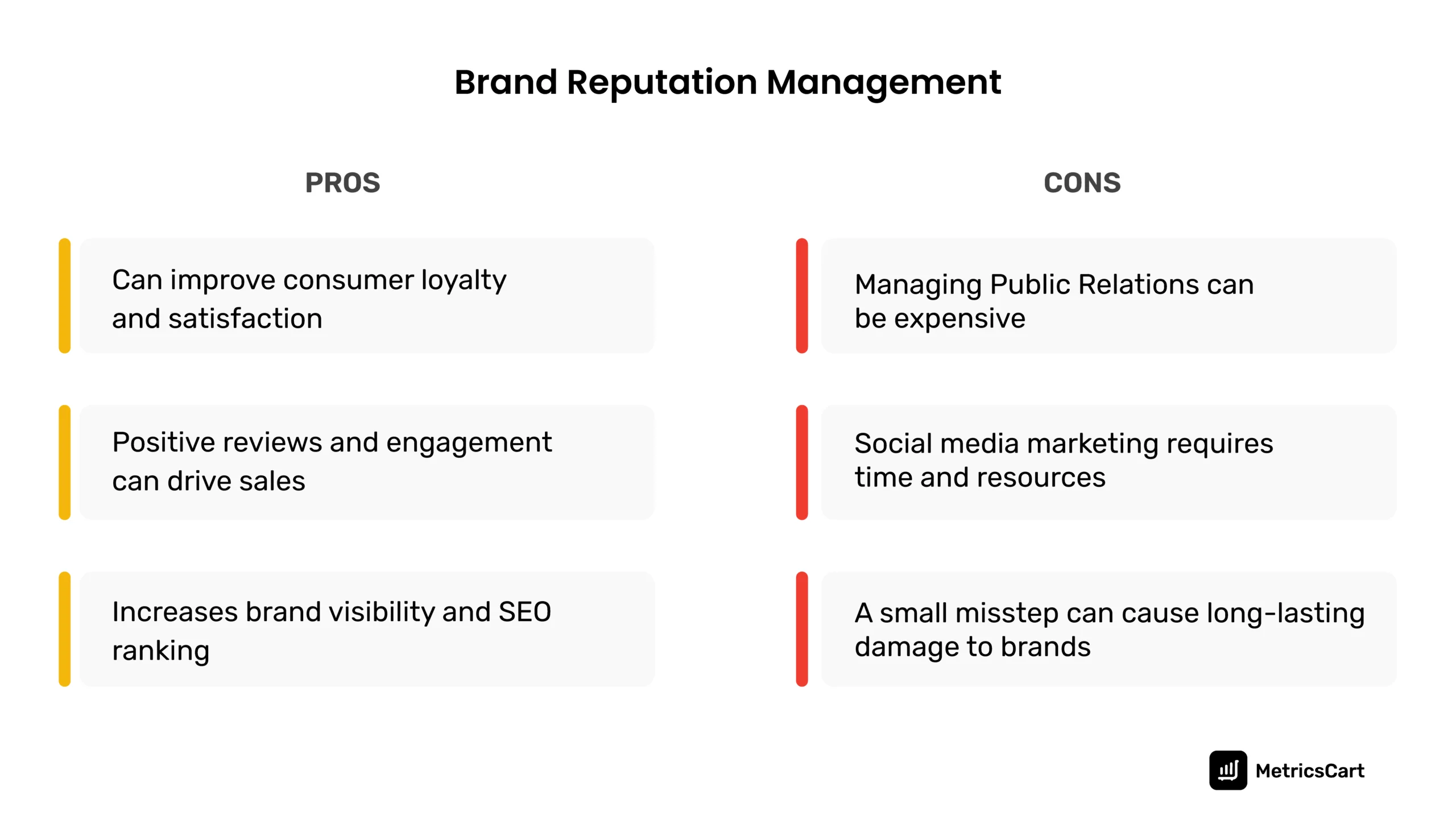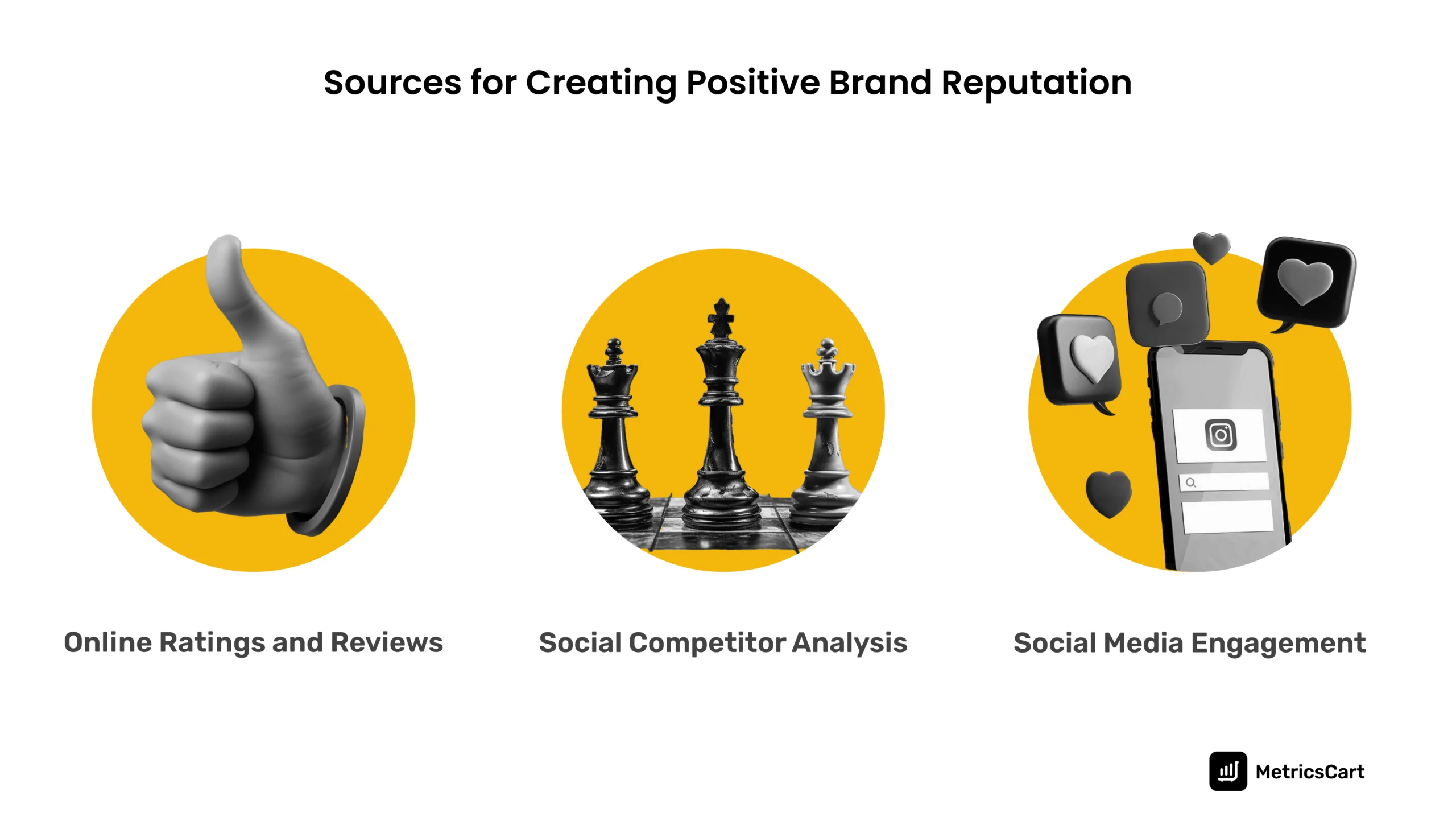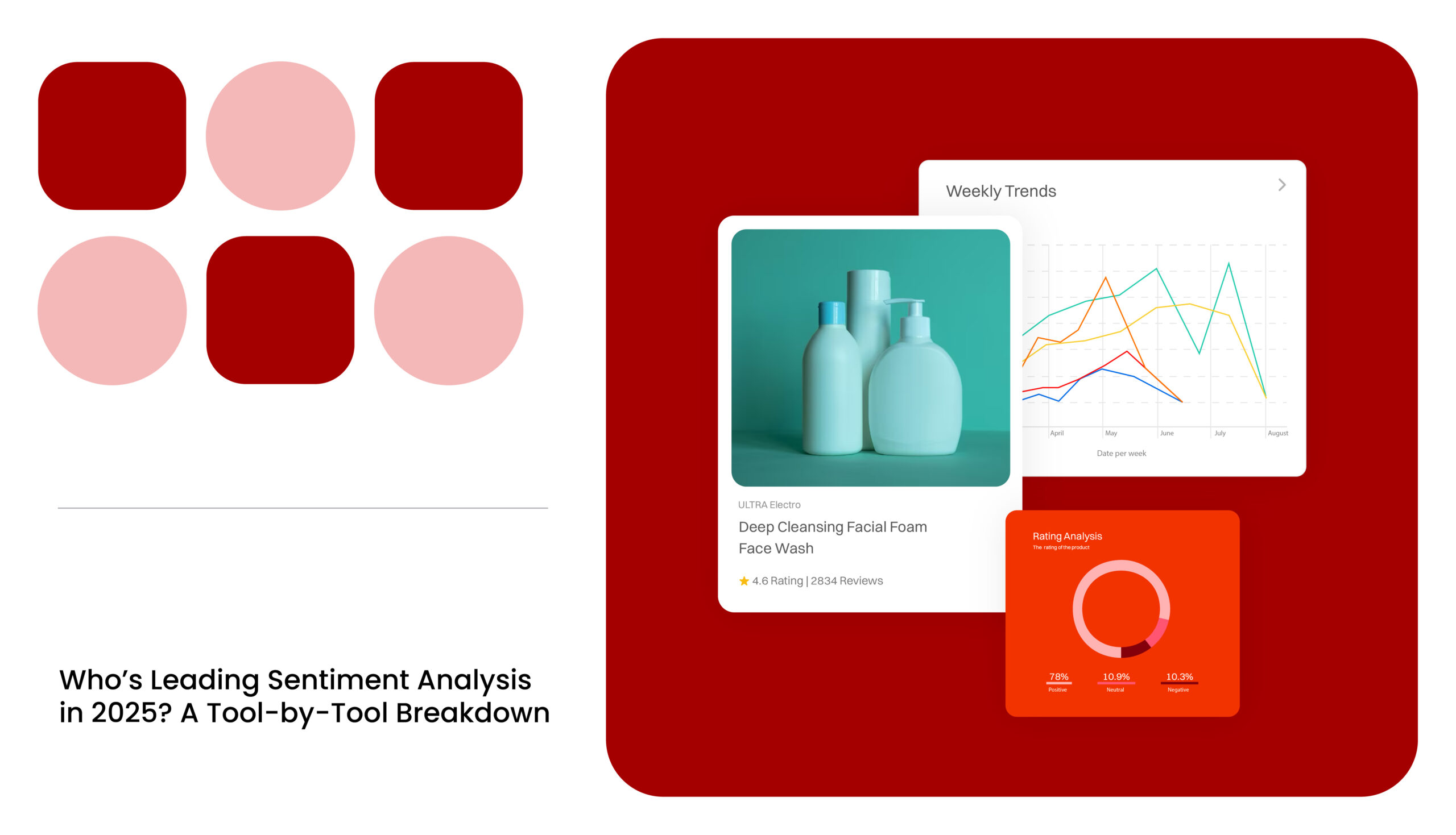The word ‘brand reputation’ can mean different things. It can refer to the brand’s perception by consumers, the value it offers, the goal it aims to achieve, etc. All these are important for sustaining the brand’s long-term relationship with the market and consumers.
Amazon CEO Jeff Bezos observes, “A brand for a company is like a reputation for a person. You earn a reputation by trying to do hard things well.” In this sense, brand and reputation aren’t two different ideas. Building or managing a brand reputation takes relentless commitment, strategizing, and a strong sense of purpose about what the brand represents.
What Is Online Brand Reputation Management?
Online brand reputation management is the process of creating a positive perception of a brand through monitoring, listening, and interacting online with consumers to improve their overall brand experience.
Social media and online communities have become an inherent part of this process, and brands must maintain a consistent presence throughout these mediums.
Product experience management is equally important as brand reputation management in attracting and retaining a consumer’s attention toward a product or brand.
READ MORE | Curious to know more about product experience management? Check out our blog Product Experience Management: A Brief Walkthrough
Importance of Online Reputation Management
Maintaining a positive image in the minds of consumers is one of the core aspects of running a successful business. This can garner multiple benefits for the brand and the business. According to the Local Consumer Review Survey 2024, 88% of consumers would prefer a business that responds to all of their reviews.
The cultural capital cultivated by the brand from day one creates a value proposition for consumers that ultimately converts to sales and profit. Here are some major benefits of using brand reputation management:
Cultivate Loyalty and Trust
Every business would want its brand to be trusted by the consumer, as trust creates brand loyalty. This is a mutually complementing relationship between the consumer and the brand.
The brand offers its products and services to the consumer while the consumer navigates their buying decisions to favor the brand. Brand reputation management helps create the idea of value in the consumer’s minds.

Better Sales and Profits
Once consumer trust is established in the brand, sales will naturally increase, leading to the business making a profit. A well-managed brand reputation is a continuous process that doesn’t end with sales.
The consumer expects after-sale services and support throughout the product cycle.
Improved Search Engine Visibility
Ranking high up in the search engine list is one of the top priorities of brands today. This is possible through productive online customer engagement.
Interacting with customers, replying to their reviews, sharing information through social media, etc., can help brands increase their online visibility.
READ MORE | Want to know more about improving your e-commerce business? Read our blog Transforming E-Commerce Business with Digital Shelf Analytics
Six Brand Examples of Brand Reputation Management
Here are six examples of how brands manage their reputation through multiple channels and using responses that make a huge impact.
Nike

Nike has established itself as a brand that listens to consumers and reflects their feedback when creating high-quality products. This perceived sense of quality and value is what brand reputation management aims to sustain.
In a 2023 Axios Harris Poll 100 reputation rankings, Nike secured the 21st rank among the most visible brands in the US. One of the main strategies that Nike has employed in handling consumer feedback online is creating an X (formerly Twitter) account @NikeService. The sportswear and apparel brand makes it a point to address the concerns and complaints of consumers.
Amazon

Being the largest online retailer in the US, Amazon has to keep its brand reputation management at peak performance. The retailer continuously monitors product reviews and ratings, creating AI review summaries to help consumers choose better.
Its in-app customer service engages with consumer complaints and feedback to improve the overall shopping experience.
The Amazon Transparency Program is an initiative by Amazon to prevent counterfeit products and fake sellers. A seller who has enrolled in the program will be provided with unique identification codes by Amazon to ensure that the products sold by the seller are genuine.
As for the consumer, this program ensures that they receive high-quality product and delivery experience with minimum hassles.
READ MORE | Unauthorized Sellers on Amazon can disrupt sales and brand credibility. Read our blog on How to Stop Unauthorized Sellers on Amazon?
Tesla

Elon Musk’s Tesla has a high Net Promoter Score (NPS) of 96 without traditional advertising or brand promotions. This is because of the unflinching loyalty of Tesla customers to the brand and how the brand also fulfills their desire to own an electric vehicle with cutting-edge features like auto-pilot.
During a 2019 Cybertruck presentation event, the vehicle’s glass window shattered when a metal ball was thrown at it. This would look like a PR disaster as the Cybertruck was boasted of being ‘indestructible,’ and the brand reputation would have taken a hit.
However, the company’s timely response and openness to the debacle by accepting the mistake quickly changed the incident in their favor by boosting the brand image.
H&M

An advertisement campaign can often inform consumers about new products and the brands’ value proposition. The Swedish apparel brand H&M is known for its diversity and cultural inclusion, catering to many customers.
The brand has been ranked number one in the clothing and shoes category of the 2023 Forbes’ World’s Top Companies for Women.
However, in 2018, H&M faced a lot of flak when they released an ad featuring a black kid wearing a green hoodie with the caption “coolest monkey in the jungle.” The brand’s reputation went on a downward spiral as people started protesting for H&M’s insensitive portrayal of race. It was a lesson learned, and the brand put out an apology letter online accepting its mistake.
Dolce & Gabbana

Designer brands have always been a part of the premium product category, and consumers desire to own products from these brands. However, these brands can also go wrong regarding their brand reputation management.
In a disastrous ad campaign for a runway show in Shanghai, D&G released a poster showing a Chinese woman struggling to eat an Italian pizza with a pair of chopsticks. The online poster was immediately met with criticism. Rather than trying to diffuse the situation, Stephano Gabbana made derogatory and racially charged remarks about China.
This created permanent brand reputation damage for D&G, and they have not been able to flourish in the Chinese market to date as retailers, department stores, and local partners boycotted the brand.
PepsiCo

Brands signing up with celebrities and influencers for ad campaigns has been an ongoing trend. This helps the brand widen its reputation and popularity. Sometimes, these collaborations can create unwanted outcomes that affect the brand’s reputation negatively.
In 2017, model and social media influencer Kendall Jenner did an ad campaign with PepsiCo. The ad shows her leaving a photoshoot and joining a protest. The climax portion of the ad shows Jenner offering a Pepsi to a policeman as a sign of peace.
This campaign was done during the Black Lives Matter protest, and the brand’s reputation was criticized for exploiting a serious issue.
Strategies for Brand Reputation Management
As explained at the beginning of the blog, brand reputation management is a continuous process and doesn’t end when the brand becomes famous or garners positive attention.

Brand reputation management should be handled through a carefully structured publicity relations department or PR department. Some companies have an in-house PR, and others hire a third party to handle the PR operations.
The core function of the PR is to ensure that the brand image stays positive and consistent in the visual field of consumers.
The main online brand reputation management strategies are:
- Analyse ratings and reviews of the brand
- Create a backup plan for unprecedented situations
- Optimize SEO strategies according to market fluctuations
- Monitor brand presence in the online space
- Give constant and sensible feedback to consumers
- Inform company vision and brand value through online channels
- Maintain consistent and up-to-date product pages
These strategies would ensure that the brand maintains a healthy relationship with the consumers and makes them feel that they are valued.
Conclusion
While accepting the fact that consumer behavior is unpredictable, brands do have resources to better understand them. This enables companies and businesses to create brand narratives that strike a balance between their own vision and consumer preferences.
MetricsCart ratings and reviews analysis equip you with a deeper understanding of consumers and their brand choices. We go a step further than sentiment analysis focusing on themes and sub-themes in consumer reviews. This is crucial when you sell on multiple retail platforms and have a wider presence in the online space.
So quit stalling and contact us to unlock the full potential of your brand.







